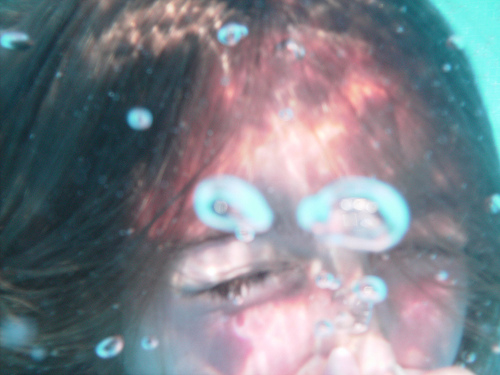It’s quite possible that my parents inadvertently trained my brain to be more philosophical then it might have been ordinarily.
I remember countless times after doing something naughty or foolish, my parents would ask me a daunting question “Why, did you do that?”
I’m not sure what kind of answers they were expecting. I would wonder why they would ask that.
Those answers were far beyond what my child brain could tackle.
Inwardly I would think, “HUH? Well, that’s a good question, I guess. I probably should have asked why to myself before I did it. It seemed like a good idea at the time. How should I know why I did it? Do they know why? If so, why don’t they just tell me? Will there be some kind of quiz later, or something? If they do know why, why did they looked so puzzled? And basically pissed off. Am I supposed to figure it out for them? …..ugh. But, now that I’m thinking of it, I do wonder why.”
I would usually answer, “I don’t know.” Deep inside I would wish and hope the scrutiny would not last too long. (It probably would lead to a “spanking” a.k.a. whoop the daylights out of me.) But, I also thought, if I did know, wouldn’t truthful answers incriminate me? What could I really come up with in all honesty, “because I wanted to,”?
Mainly through the sheer number of inquiries, I developed the feeling that the answer to “why” had importance. I started on a path toward “hack philosopher”…
“Why would people wish to put meat into ball shapes?”
“Why would chewing gum before supper truly ruin supper itself?”
“Why was, ‘because I said so’ considered an acceptable reason for adults to give me, but never good at all for me to reply to them?”
When troubles or suffering would come, I would instinctively ask “why”?
Maybe learning a lot of things would give me these sought for questions. I tried that a bit. (I still love roving around libraries on a quest of discovery.) After a good deal of learning, one day it came to me:
“Almost all the really crucial questions that ask ‘why’ have quite unsatisfactory answers.”
Or, the answers get debated widely, and are rarely agreed on. Or, the “answers” have the kind of complexities that don’t make one feel better about things. At all.
All this preparatory ‘why’ work…for what? Zip. More or less.
Instead of those sorts of questions, I moved on. “What does asking why tell us about us, and why we should want to know in the first place?” That seems like a much bigger question, with the kind of answer that will make a difference.
We want things to make sense. We want purpose and something to believe in that won’t let us down. We want to count on something. Will a concrete answer provide this? It seems most concrete answers only produce more questions. Of course, I was only satiated with pat answers for a short time. (I do believe I was also trained to understand that challenging answers was either a lack of faith, or a flaw in character.)
It’s been a new path for me to have a certain serenity that understanding may begin when the intricacies that the why questions remain in creative tension with discovery and mystery.
And so “why mystery?”
For me, it’s about knowing things in terms of relationship, not facts. The facts can be manipulated, massaged, or up for grabs. But, true trust, based on an ongoing and lavish love, surmounts what facts never satisfy.
God is why.
Leave a comment…






 When I was in under my parent’s care, I was hit with a spatula among other things, in what my parents called discipline with “the rod”. This was picked over “time outs,” or being grounded, and my back side broke many a spanking implement–wooden rulers and cooking spoons, frosting spatulas, pancake spatulas, and probably other stuff I’ve blocked out psychologically. (I won’t even go into the things that didn’t or couldn’t brake on my backside!)
When I was in under my parent’s care, I was hit with a spatula among other things, in what my parents called discipline with “the rod”. This was picked over “time outs,” or being grounded, and my back side broke many a spanking implement–wooden rulers and cooking spoons, frosting spatulas, pancake spatulas, and probably other stuff I’ve blocked out psychologically. (I won’t even go into the things that didn’t or couldn’t brake on my backside!)